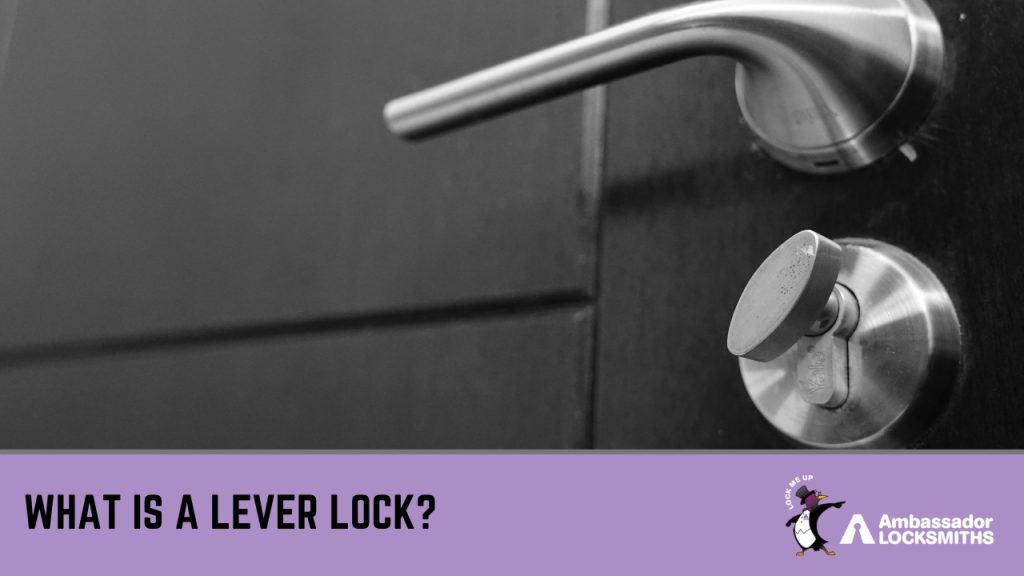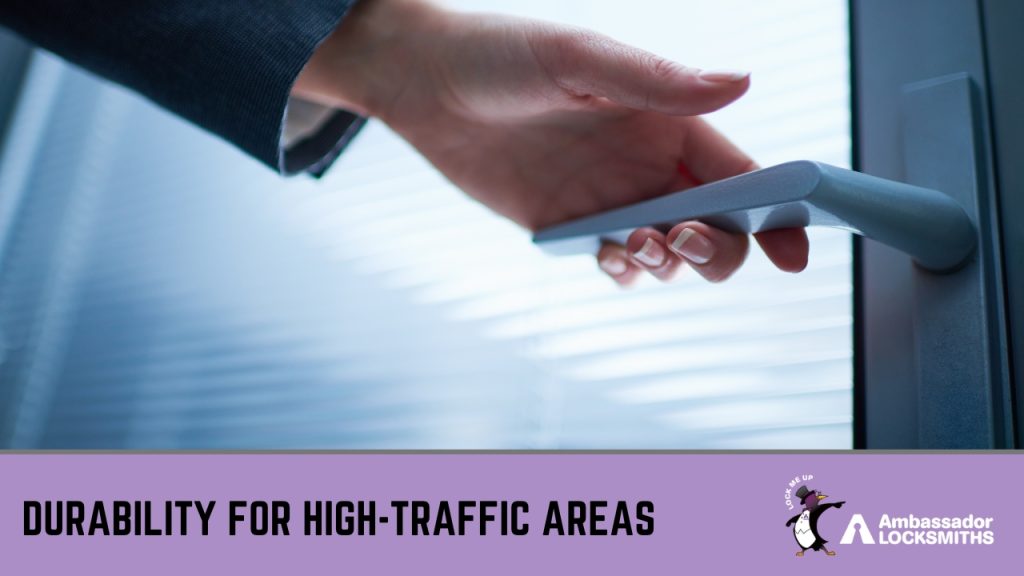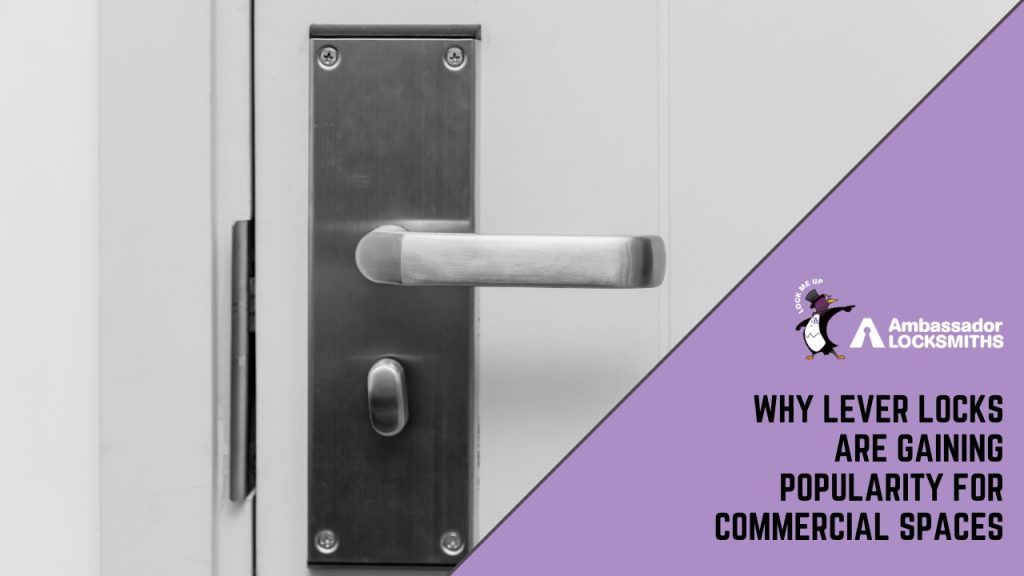Business owners face growing demands when it comes to securing their buildings. Offices, retail outlets, and public facilities need locks that are not only secure but also practical for everyday use. Traditional knob-style locks can create issues in busy environments, especially for people carrying items or those with limited mobility.
These challenges can impact both security and accessibility. Staff may struggle to move quickly through doors, customers may find entry points difficult to use, and building managers often need to replace hardware that wears out too quickly. Over time, these problems lead to higher costs and reduced efficiency in commercial spaces.
Lever locks provide a solution that addresses these concerns. They combine strength with ease of use, making them suitable for high-traffic areas. They also meet Australian accessibility standards, meaning they support inclusivity while maintaining security. In this article, we explain why lever locks are becoming the preferred choice in commercial settings and how they can improve everyday operations.
What Is a Lever Lock?
A lever lock is a type of door hardware that uses a handle-style lever instead of a traditional round knob. To operate, the user simply pushes the lever downward to release the latch and open the door. This design provides a more straightforward action than twisting a knob, which can be difficult in certain situations.
These locks are commonly found in three main variations: passage levers, privacy levers, and keyed entry levers. Passage levers are used on doors that don’t require locking, such as internal hallways. Privacy levers are suited for restrooms or meeting rooms where basic privacy is needed. Keyed entry levers provide added security and are often installed on office doors, storerooms, or external entry points.
The design of lever locks makes them especially useful in commercial environments. They are easier to grip and operate, even when a person’s hands are full or strength is limited. This balance of function and practicality explains why they are increasingly replacing traditional knobs in workplaces and public buildings.

Ease of Use and Accessibility
Lever locks are designed to be simple to operate. A single downward push opens the door, which is easier than twisting a knob. This makes them practical in many commercial settings where staff and visitors need quick and reliable access.
They are also fully compliant with Australian accessibility standards, making them suitable for buildings that must meet disability access requirements. Lever handles are easier to grip and use for people with mobility challenges, and they improve convenience for a wide range of users, including:
- Staff and visitors carrying bags or equipment
- People with limited hand strength or mobility issues
- Workplaces that require fast and easy access
These benefits show why lever locks are increasingly chosen for offices, schools, retail stores, and public buildings. They combine ease of use with compliance, ensuring access points are both practical and inclusive.
Durability for High-Traffic Areas
Commercial buildings require locks that can withstand constant use. Unlike residential settings, office doors, retail entrances, and school facilities may be opened hundreds of times each day. Lever locks are built with reinforced internal mechanisms and stronger handles that resist wear, making them well-suited for these conditions. Many models designed for commercial use are tested to endure hundreds of thousands of opening and closing cycles without failure.

This durability reduces the need for frequent replacements and lowers long-term maintenance costs. For building managers, this reliability is essential, as broken or faulty locks can disrupt daily operations and compromise security. Choosing locks that are rated to commercial standards ensures they deliver consistent performance over time.
By investing in lever locks for high-traffic areas, businesses gain both strength and reliability. Doors remain functional under heavy use, and the risk of unexpected breakdowns is reduced. This combination of resilience and ease of use explains why lever locks are increasingly preferred in demanding commercial environments.
Versatility in Design and Function
Lever locks can be used across many areas of a commercial property. Their range of styles and mechanisms allows them to meet different levels of security and access needs while keeping a consistent design throughout the building.
Common applications include:
- Keyed entry levers for external doors or secure stockrooms
- Passage levers for hallways or doors that don’t require locks
- Privacy levers for restrooms or meeting spaces
- Electronic and smart levers for keyless entry and access control
Electronic models add further convenience by integrating with systems such as keypads, swipe cards, or mobile unlocking. This flexibility allows businesses to modernise their access control without replacing every lock in the building.
With this variety, property managers can choose the right lever lock for each space, ensuring both functionality and security across the premises.
Improved Security with Modern Locking Mechanisms
Lever locks used in commercial spaces are more than just convenient—they can also deliver a high level of security. Many models are designed to work with restricted key systems, limiting who can duplicate keys and reducing the risk of unauthorised access. They can also be paired with master key systems, allowing property managers to control access to different areas while keeping the number of keys in circulation to a minimum.
Modern lever locks are also compatible with electronic and keyless entry technologies. Options include keypad access, swipe card systems, and mobile unlocking. These additions are especially valuable for larger businesses that require secure yet efficient movement of staff and visitors through multiple doors.
This combination of mechanical reliability and advanced security options makes lever locks a practical solution for workplaces that want to strengthen access control without complicating daily use. Commercial buildings benefit from a system that supports both safety and convenience.
Need Help Upgrading Your Commercial Locks?
At Ambassador Locksmiths, we supply and install lever lock systems designed for commercial buildings of all sizes. Our team works with offices, retail stores, schools, and other facilities that require secure and reliable access solutions. Lever locks provide strength, ease of use, and compliance with accessibility standards, making them a practical choice for busy environments.
We can recommend the right type of lever lock for each door in your property, whether you need keyed entry for secure areas, privacy levers for meeting rooms, or electronic options for modern access control. With professional installation and ongoing support, we ensure your locks perform at their best and meet commercial-grade standards.
If you’re considering an upgrade or need advice on improving security, contact us today. Our locksmiths are ready to help you choose durable solutions that make daily access safe, compliant, and efficient.
Frequently Asked Questions
Are lever locks more secure than doorknobs?
Yes. Commercial-grade lever locks are designed with reinforced components and can be used with restricted key systems for greater security.
Are lever locks suitable for people with disabilities?
They are easier to operate than round knobs and comply with Australian accessibility standards, making them suitable for public and commercial buildings.
Can lever locks be used with a master key system?
Yes. They are compatible with master key systems, allowing property managers to control access levels across different areas of a building.
Do lever locks work with electronic access systems?
Many models integrate with smart systems, including keypads, swipe cards, and mobile access, providing flexibility for modern workplaces.
How often do lever locks need maintenance?
High-quality lever locks require minimal maintenance. Periodic checks by a locksmith are recommended to ensure ongoing performance and security.

